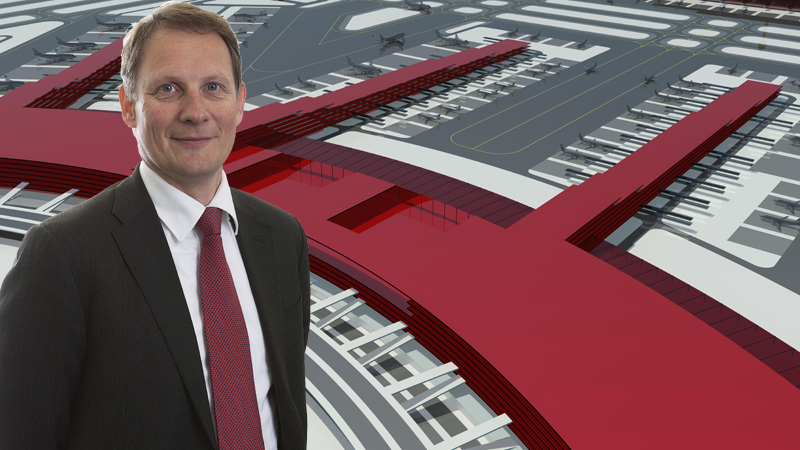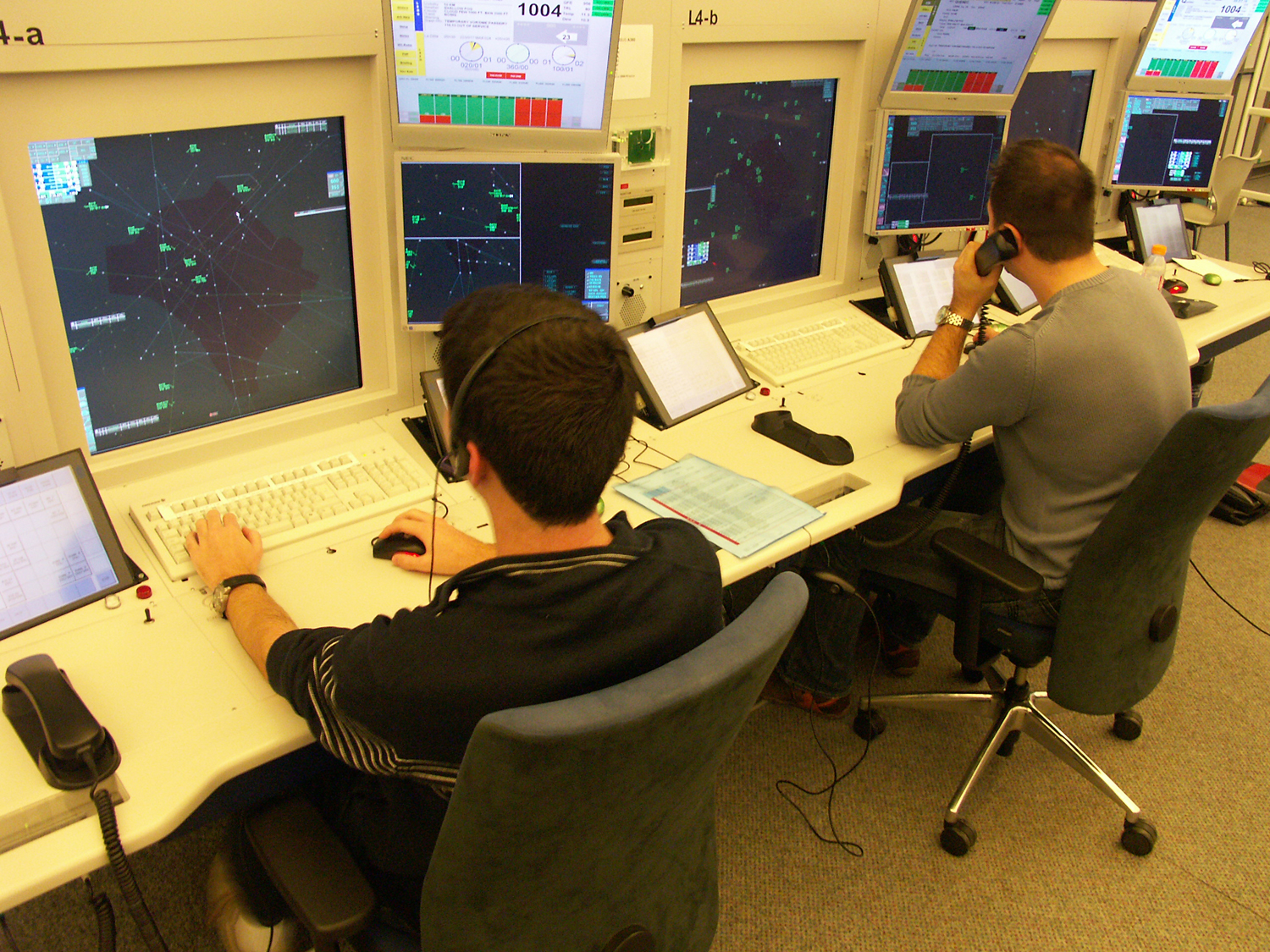In 2017 the Beijing New International Airport (BNIA) will open for business and will then become the world’s largest airport in terms of aircraft movements. Clearly such a large airport needs an extraordinary master plan. NACO, a Dutch airport planning company recently won the design for the master plan – we wrote about it in our weekly news. We now have the chance to speak to NACO’s managing director, Rik Krabbendam to ask him a few more questions.
Continue reading Interview with NACO’s managing director about Beijing New International Airport
Tag Archives: Interview
Interview: Air Traffic Controller from Geneva Airport
LateDeparture.com is proud to have secured an interview with Daniela, an experienced Air Traffic Controller from Geneva airport. She provides us with interesting insights about her job, the stress levels and where she thinks air traffic volumes are heading towards. Plus she provides us with her favourite airport tips.
How did you become a Air Traffic Controller (ATC)?
After a few psycho-technical and job related tests, SKYGUIDE (former swisscontrol) proposed me to join a 36 months lasting student course.
The first year, I had a lot of theory lessons about legislation, aerodynamics, aircraft recognition and other ATC subjects followed by a period of simulator training.
Then, all the students (around 40) of my class were transferred to the final location, either Geneva, Zurich, Bern or Lugano. We had also few students working for military airports.
After two more years of on the job training, under surveillance of a confirmed and trained coach, I got my license to work alone on the different sectors at the tower and approach-sector in Geneva.
Can you explain our readers what your job involves on a day to day basis?
In my daily business I am always member of a team working in changing shifts.
In the Tower or Aerodrome Control, our team has to supervise the entire airport’s taxiing, takeoff and landing operations, as well as handling all the airborne traffic in the airport’s immediate vicinity.
In Approach Control, we guide all approaches and departures within a radius of around 50 kilometres from the airport. This includes managing and monitoring departing flights as they climb to their assigned levels and airways, and assisting aircraft down until they are handed over to the Tower.
Many people regard your job as a very stressful one with a lot of responsibility, do you see it this way too?
It can be very stressful, for instance on high loaded days as during the summer holiday period.
But, to hand over to an other colleague at the end of my shift, is the hugest advantage of my job. At the end of my working day I do not have to worry about ongoing folders as someone else is taking on the traffic.
During the years you have worked in your job, the air traffic volume has increased steadily, did your workload increase in parallel to that?
Yes, it increased constantly, but not at the same rate as the traffic volume. Compared to the nineties we have a lot more technical help, the systems are in a constant evolution to assist us in an optimal way.
As this blog is about what you can do at airports when your flight is delayed, one obvious question is, what areas can Air Traffic Controller influence in terms of punctuality or delay in terms of a specific flight?
Obviously, every ATC is always doing his best to expedite the traffic flow.
We try to optimize constantly the speeds of the arriving traffic in a way to permit to get in-between each arrival at least one departure out. This is by the way a specificity of Geneva as we are one of the busiest airports with one single runway in use.
For the slot management we do not have a lot of possibilities to act on, as we are only one of many handling a flight.
Each sector treating a flight from the departure airport to the final destination has a certain capacity, meaning an amount of traffic it is able to handle at a given time at the given conditions.
This capacity depends on the weather conditions, the staffing, the availability of navigational aids and technical installations.
For all flights anywhere in Europe, the routings are collected in a central computer at Brussels where they are compared and so called departure slots are distributed to flights which risk to be in a traffic congestion.
This flights are then held on ground instead of being kept longer in the air in a traffic jam.
Can you illustrate a specific example for Geneva airport where a situation led to delays? What did you (have to) do about it?
One obvious example creating delay is a runway closure, for instance in winter time, when snow clearing becomes necessary. Then, the fire brigade needs around half an hour to remove the snow on a large width and the whole length of the runway.
As well in winter, the time needed on ground for the aircraft can be increased for deicing procedures. The aircrafts have to be cleared of ice and snow which could cause too much resistance during flight enabling the aircraft to fly properly.
But the most common reason for delay is the overload of sectors, as all the companies want to have the same arriving times at their destination. For example, a lot of businessjets plan to arrive on time for the first meetings in the morning, so you create the same traffic jams as you find on the road on the way to your office.
Clearly safety is the biggest priority in your job, but do you also get measured on timeliness of arriving and departing aircrafts?
Yes, we do get regularly feedback on our performance in terms of delay.
There exists a so called “hit-list” of the worst airports in Europe where Geneva figures on as number 17 with an average delay of around 0.34 minutes per flight for the 175’863 handled flights in 2008. 95% of all flights were able to respect their schedule on time.
What would your suggestion be for improving flight punctuality in general?
As a passenger you can contribute to more punctuality by being ready early enough at the gate. This measure helps the companies to leave the stand on time and meet the given departure slot.
If a flight is delayed due to a missing passenger, the company has to announce the delay to the flow management and the departure slot is lost. As it is a last-minute change, this flight will get the next available slot which can be hours later. The principal of the slot allocation is always “first come, first served”.
The second suggestion would be to be patient, as a flight is much safer, economically and ecologically while waiting on the ground than doing holding patterns close to the overloaded destination.
You have probably come across many airports in your life as well, do you have a personal favorite and if so, what makes that airport special?
Of course Geneva Cointrin is one of my favorites, as you can get one of the best coffees and chocolates at “MARTELS confiseur” close to the arrival hall. It is also famous for its “pavé de Genève”, a chocolate speciality.
An other airport I like a lot is Copenhagen [read our reviewed here] , people are very friendly and from an operational point of view, the two parallel runways and the very flat topography are a huge advantage for expediting the traffic.
Thank you very much, Daniela, for your time answering all our questions!
[Picture from Skyguide]
Bangkok airport blockade: Interview with stranded traveller
About three weeks ago, protesters supporting the People’s Alliance for Democracy stormed Bangkok’s Suvarnabhumi airport (IATA: BKK), occupying the departure lounge and blocking all exits. With that 3,000 people were stranded within the airport and another 350,000 were stranded within Thailand. One of them, Markus, a friend of mine on holiday in Thailand. After an additional 9 days in Thailand, he finally returned last Sunday. Latedeparture.com was able to speak with him about his experience:
Tom for LateDeparture.com: When was your original flight back planned for?
Markus: Our original flight was scheduled for Friday November 28th with Emirates via Dubai to Munich. At the end we flew on Sunday December 7th with Lufthansa to Frankfurt – a short delay of nine days.
That sounds terrible, what had happened?
Three days before our original flight anti-government protestors (the yellow shirts from People’s Alliance for Democracy) took over Bangkok’s international airport. One day later they occupied Bangkok’s domestic airport too. So Bangkok was blocked from international air traffic and we were stranded in Thailand. After the Constitution Court ruled on December 2nd to disband the three ruling parties in the coalition government the protestors gave up the airport blockade and since December 6th the airport reopened for international flights.
Did you actually get stuck at the airport?
No, when we arrived in Bangkok it was impossible to go to the airport already.
How did you then spend the days waiting for your flight back?
After we realized that it will take some days to get out of Thailand (we also checked alternatives like flying form Malaysia or Singapore) we spent some relaxing days on Ko Chang Island waiting for news. When the protestors left the airport we went back to Bangkok and hoped for a reopening of the airport. The last three days we spend in a luxury hotel in Bangkok which was paid for by the Thai government. We also spent many hours waiting in the Emirates office waiting for news and searching for alternative flights. This was the most annoying part as the Emirates stuff was quite overstrained so that we got different information each day.
How did you then manage to get a flight back home?
As Emirates was one of the few airlines which didn’t operate from alternative airports and which didn’t send extra planes during the blockade (e.g. Lufthansa operated their Bangkok flights from Phuket and Air Berlin operated from the formerly military airbase Utapao) we still had no return flight after the Bangkok airport reopened on December 5th. Emirates just told us that they will call us within the next days. So we went to the Lufthansa office and got ourselves a return flight to Frankfurt. Probably a good decision as we had the impression that only Emirates passengers were still stranded in Bangkok when we left (especially in our hotel).
Was that at least a pleasant experience on the way out? I bet the airport must have been croinwded still, right?
As most airlines had the extra flights from other airports the Bangkok airport was not crowded at all when we flew back. Also there were no other signs showing the airport was closed for more than a week when we arrived at the airport.
Did you discover anything specially great or annoying about Bangkok airport?
The Bangkok airport is quite modern with a lot of opportunities to spend some hours.
Do you think this event changed how the airport operates?
I think this event won’t have any influence on the way the airport operates but the event will have a big influence on tourism in Thailand next year.
Thank you for your time answering my questions!
You are welcome.
[Picture from BBC]


